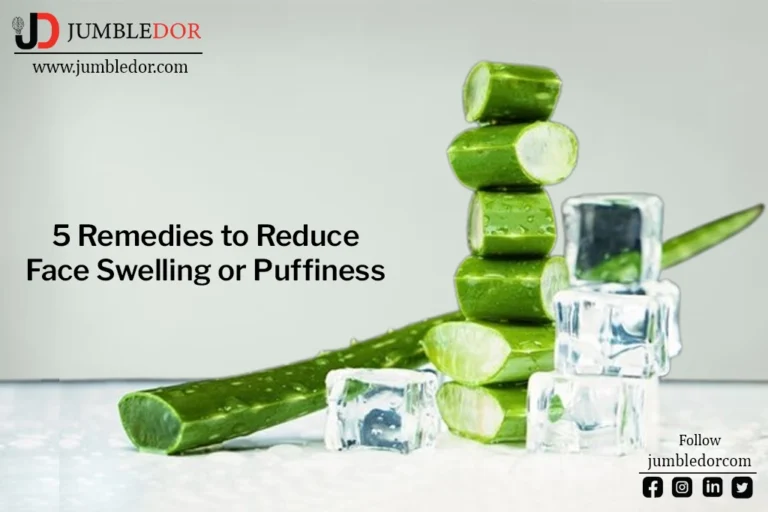Remedies to reduce face swelling or puffiness can be simple and effective, especially when using natural or home remedies. Face swelling or puffiness can be caused by a variety of factors such as allergies, sinusitis, medications, alcohol consumption, salt or caffeine intake, stress, and lack of sleep. In this article, we will discuss 5 remedies that can help reduce face swelling or puffiness and make you feel better.
1. Have more anti-inflammatory foods
Natural remedies can be very effective in reducing face swelling or puffiness. One of the best natural remedies is anti-inflammatory foods such as leafy greens, berries, fatty fish, and nuts. These foods can help reduce inflammation in the body, which can lead to a reduction in face puffiness. Drinking plenty of water can also help reduce face swelling as it helps to flush out toxins and reduce fluid retention in the body.
2. Cold compress and facial massage
Home remedies such as cold compress and facial massage can also help reduce face swelling or puffiness. A cold compress can be made by wrapping a few ice cubes in a clean towel and applying it to the affected area for about 10-15 minutes. The cold temperature can help reduce inflammation and constrict blood vessels, which can reduce face swelling. A facial massage can also help reduce face swelling as it can increase blood flow and lymphatic drainage in the face. You can use your fingers or a jade roller to gently massage the affected area.
Also read: Benefits of ice for face and skin
3. Stay hydrated
Hydration is also important in reducing face puffiness. Drinking plenty of water can help flush out toxins and reduce fluid retention in the body. You should drink at least 8 glasses of water a day. Lack of sleep can also contribute to face swelling or puffiness, so it’s important to get enough sleep each night. Aim for 7-8 hours of sleep per night to reduce the risk of face swelling.
4. Allergy treatment
Allergies and sinusitis can also cause face swelling or puffiness. If you have allergies, it’s important to identify the allergen and avoid it. Over-the-counter antihistamines can also help reduce allergy symptoms such as face swelling. Sinusitis can also cause face swelling or puffiness, and nasal irrigation can help reduce the inflammation and congestion associated with sinusitis. Nasal irrigation is flushing out the nasal passages with a saline solution.
5. Reduce intake of inflammatory foods
Medications, alcohol consumption, salt intake, caffeine intake, stress, and lack of exercise can also contribute to face swelling. Medications such as corticosteroids can cause fluid retention in the body, which can lead to face puffiness. Alcohol consumption and high salt intake can also cause fluid retention, so it’s important to limit these substances. Caffeine intake can cause dehydration, which can lead to face puffiness, so it’s important to limit caffeine intake as well. Stress can also contribute to face swelling, so stress management techniques such as deep breathing, yoga, or meditation can be helpful. Exercise can also help reduce face puffiness as it can increase blood flow and lymphatic drainage in the body.
Also read: Benefits of Vitamin C for skin health
In conclusion, face swelling or puffiness can be caused by a variety of factors, but natural and home remedies can be very effective in reducing face swelling or puffiness. Anti-inflammatory foods, hydration, cold compress, facial massage, and good sleep hygiene can all help reduce face swelling or puffiness. Allergies, sinusitis, medications, alcohol consumption, salt or caffeine intake, stress, and lack of exercise can also contribute to face puffiness, so it’s important to address these factors as well. By incorporating these remedies into your daily routine, you can reduce face swelling or puffiness and feel better.


